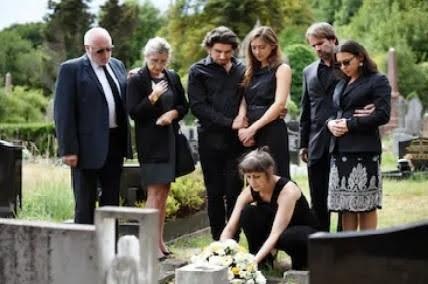The recent mass shootings in Gilroy, El Paso and Dayton have left 33 dead. Sadly, that is a small fraction of the 36,000 Americans killed by firearms every year. These thousands of victims leave many more survivors who must deal with the sudden, unexpected loss of a loved one.
The Unique Challenges of Traumatic Loss
Grieving a violent passing presents special challenges for survivors. Researchers have found that those mourning a traumatic death (by homicide, suicide or accident) experience “complicated grief” at a rate of anywhere from 12.5 to 78 percent. Complicated grief (also known as persistent complex bereavement disorder) is characterized by feelings of loss so debilitating they don’t improve after years have passed. As a result of these persistent painful emotions, one has difficulty coping with the loss and resuming a normal life.
Survivors of violent death must struggle with not only the loss itself, but also with any intrusions of the legal system and/or unwanted publicity. In addition the bereaved may experience the following:
- Shattered assumptions about whom or what to trust. The mourner no longer feels completely safe and secure in the world. And they can no longer fully trust other people.
- The tendency to obsess about the death and its causes: who is to blame, could it have been prevented, etc.?
- Feelings of guilt and self-blame. The mourner may wonder about their role in the death. Or feel bad about past conflicts with the deceased.
- Other strong feelings, such as sadness, confusion, shock and denial.
- The survivor may develop symptoms of post-traumatic stress disorder (PTSD): anxiety, panic, numbness, reactivity and sleeplessness.
How to Support Someone Grieving a Traumatic Death
Often those who grieve a death don’t get the social and therapeutic support needed for healing. This is especially true for traumatic loss, when friends, acquaintances and even mental health professionals don’t understand the special complications associated with this type of grief. But even if we can’t fully comprehend the horrific experience of traumatic loss, there are ways we can support survivors in their mourning:
- Even if you don’t know what to say, don’t avoid the person. Just make it clear you’re really ready to listen when he or she is ready to talk.
- Understand that you cannot know exactly what the person is experiencing. Be open to learning from the bereaved about their struggles.
- Understand that the survivor’s life may never be the same. It may take years for the person to find ways to cope with the loss.
- Don’t tell the mourner what to do or think about the death. Avoid saying unhelpful clichés, like “It was God’s will.”
- Allow the person to experience all the sadness, pain and hurt they are feeling.
- Don’t wait for the mourner to call you. Take the initiative to connect because survivors tend to isolate themselves.
- Offer the bereaved practical help, such as buying groceries or making phone calls.
- Share a photo or a positive memory of the deceased.
- Be aware of your own feelings. Just hearing about a sudden or violent death can trigger traumatic emotions in all of us. Seek professional help if needed.
Facing the Reality of Sudden Loss
Sadly, we live in a time when many of us will experience the sudden loss of a loved one through violence or disaster. Being sensitive to the emotional toll such deaths will inflict on ourselves or others will certainly help the healing process — if the worst should happen, grief therapy can offer meaningful support.

